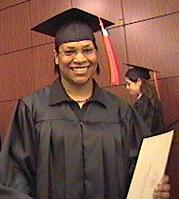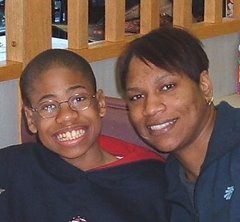According to a study published in the November 2005 Archives of General Psychiatry, children with autism who show hyperactivity symptoms may benefit from drugs commonly used to treat attention-deficit hyperactivity disorder or ADHD. A study of 72 children between the ages of five and 14 diagnosed with persuasive developmental disorders together with hyperactivity, was performed by group of American researchers. Nearly half of the hyperactive children with autism in the study responded to treatment with methylphenidate, a commonly prescribed ADHD drug i.e. Ritalin. However, the authors observed that 13 of 72 children in the study group stopped using the medication due to side effects. The research group also stated "the magnitude of response was less than that seen in typically developing children with attention-deficit/hyperactivity disorder."
Abstract
Randomized, Controlled, Crossover Trial of Methylphenidate in PervasiveDevelopmental Disorders With Hyperactivity Research Units on Pediatric Psychopharmacology (RUPP) Autism Network ArchGen Psychiatry. 2005;62:1266-1274.
Context Hyperactivity and inattention are common symptoms in childrenwith autistic disorder and related pervasive developmental disorders, butstudies of stimulants in these conditions have been inconclusive.
Objectives To determine the efficacy and safety of methylphenidate hydrochloride in children with pervasive developmental disorders and hyperactivity.
Design Double-blind, placebo-controlled, crossover trial followed by open-label continuation.
Setting Five academic outpatient clinics.
Participants Seventy-two drug-free children, aged 5 to 14 years, with pervasive developmental disorders accompanied by moderate to severe hyperactivity.
Interventions Prior to randomization, subjects entered a 1-week test-dose phase in which each subject received placebo for 1 day followed by increasing doses of methylphenidate (low, medium, and high doses) that were each given for 2 days. The low, medium, and high doses of methylphenidate hydrochloride were based on weight, and they ranged from 7.5 mg/d to 50.0mg/d in divided doses. Subjects who tolerated the test dose (n = 66) were assigned to receive placebo for 1 week and then 3 methylphenidate doses in random order during a double-blind, crossover phase. Children responding to methylphenidate then entered 8 weeks of open-label treatment at thei ndividually determined best dose.
Main Outcome Measures The primary outcome measure was the teacher-rated hyperactivity subscale of the Aberrant Behavior Checklist. Response was defined as "much improved" or "very much improved" on the Clinical Global Impressions Improvement item coupled with considerable reductions in the parent-rated and/or teacher-rated Aberrant Behavior Checklist hyperactivity subscale score.
Results Methylphenidate was superior to placebo on the primary outcome measure, with effect sizes ranging from 0.20 to 0.54 depending on dose and rater. Thirty-five (49%) of 72 enrolled subjects were classified as methylphenidate responders. Adverse effects led to the discontinuation of study medication in 13 (18%) of 72 subjects.
Conclusions Methylphenidate was often efficacious in treating hyperactivity associated with pervasive developmental disorders, but the magnitude of response was less than that seen in typically developing children with attention-deficit/hyperactivity disorder. Adverse effects weremore frequent.
Research Units on Pediatric Psychopharmacology (RUPP) Autism NetworkParticipants: Michael G. Aman, PhD, (principal investigator)
For information, resources and practical strategies on autism visit: www.AutismConcepts.com.


